
So why do we hear a constant rhythmic thudding in our pillows every night?Have you ever jumped into bed after a long day, rolled onto your side and noticed rhythmic thudding noise as you’re trying to drift off?
Well you wouldn’t be the only one – but why does this noise happen and is it anything to be concerned about?
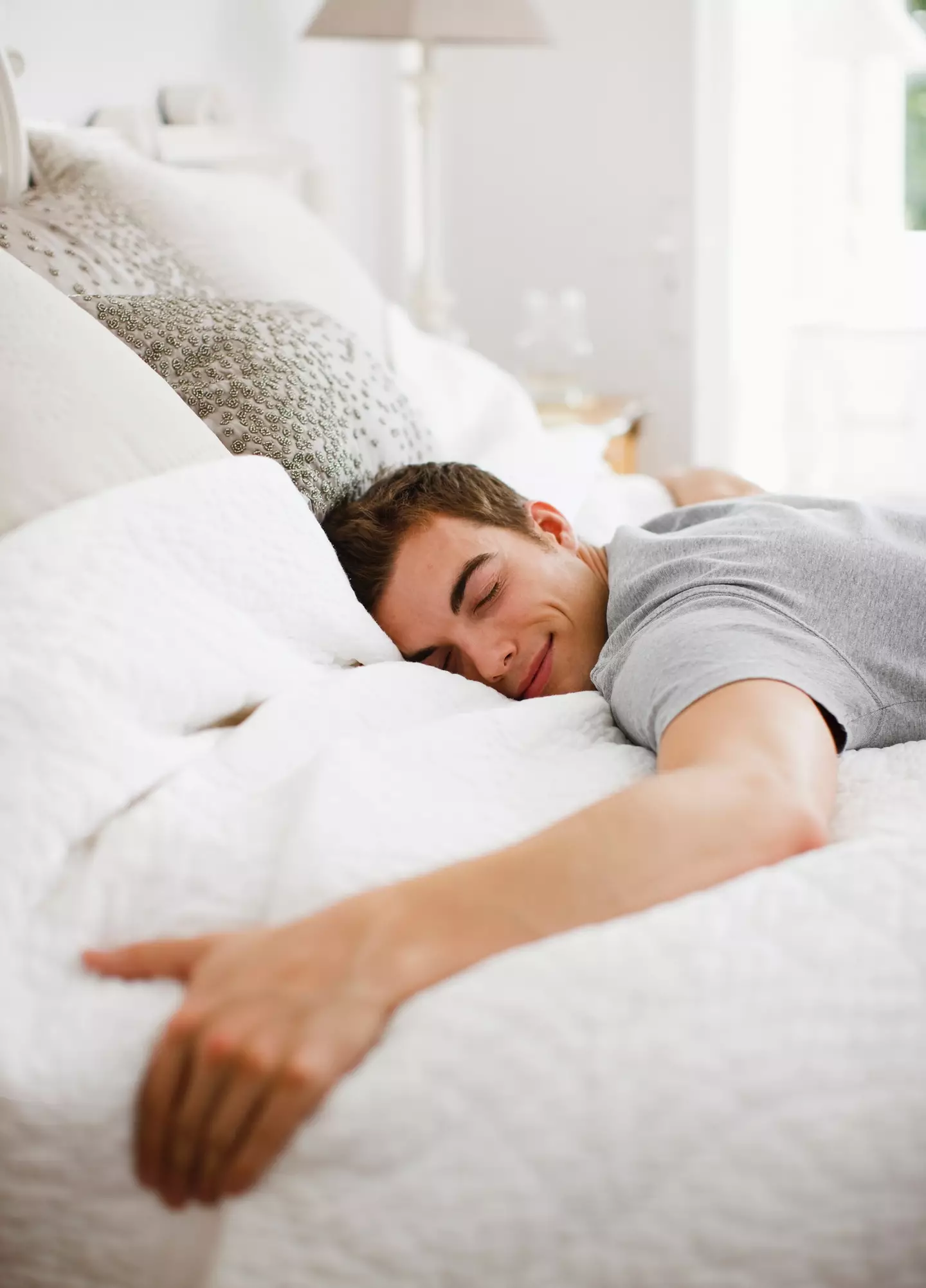
Have you ever been unsettled by the sound while trying to fall asleep? (Getty Stock Image)
Why can you hear your heartbeat when lying on your side?
The first thing to note about hearing your pulse while lying on your side is that it’s totally normal.
Explaining the phenomena in a recent TikTok video is US surgeon Dr Anthony Youn, who likened the noise to the bass being turned up ‘too loud’ in your pillow, he said: “If, every once in a while, you’re lying on your side and you hear your heart beating, it’s most likely your carotid artery basically sitting against your pillow.”
READ MORE:
REASONS YOU CAN WAKE UP WITH HEART PALPITATIONS IN THE NIGHT AND HOW TO TELL IF THEY’RE MORE SERIOUS
MILITARY SLEEP METHOD CAN SEND PEOPLE TO SLEEP IN ‘TWO MINUTES’
The carotid arteries are one of the heart’s major blood vessels which sit on either side of our neck and pass by the inside of our ears. They are responsible for supplying blood to our head, face and neck.
When you lie on your side the carotid artery is basically against your pillow, meaning the thudding noise is just your body doing its job in keeping you alive and well.
So completely normal and nothing to worry about, right?
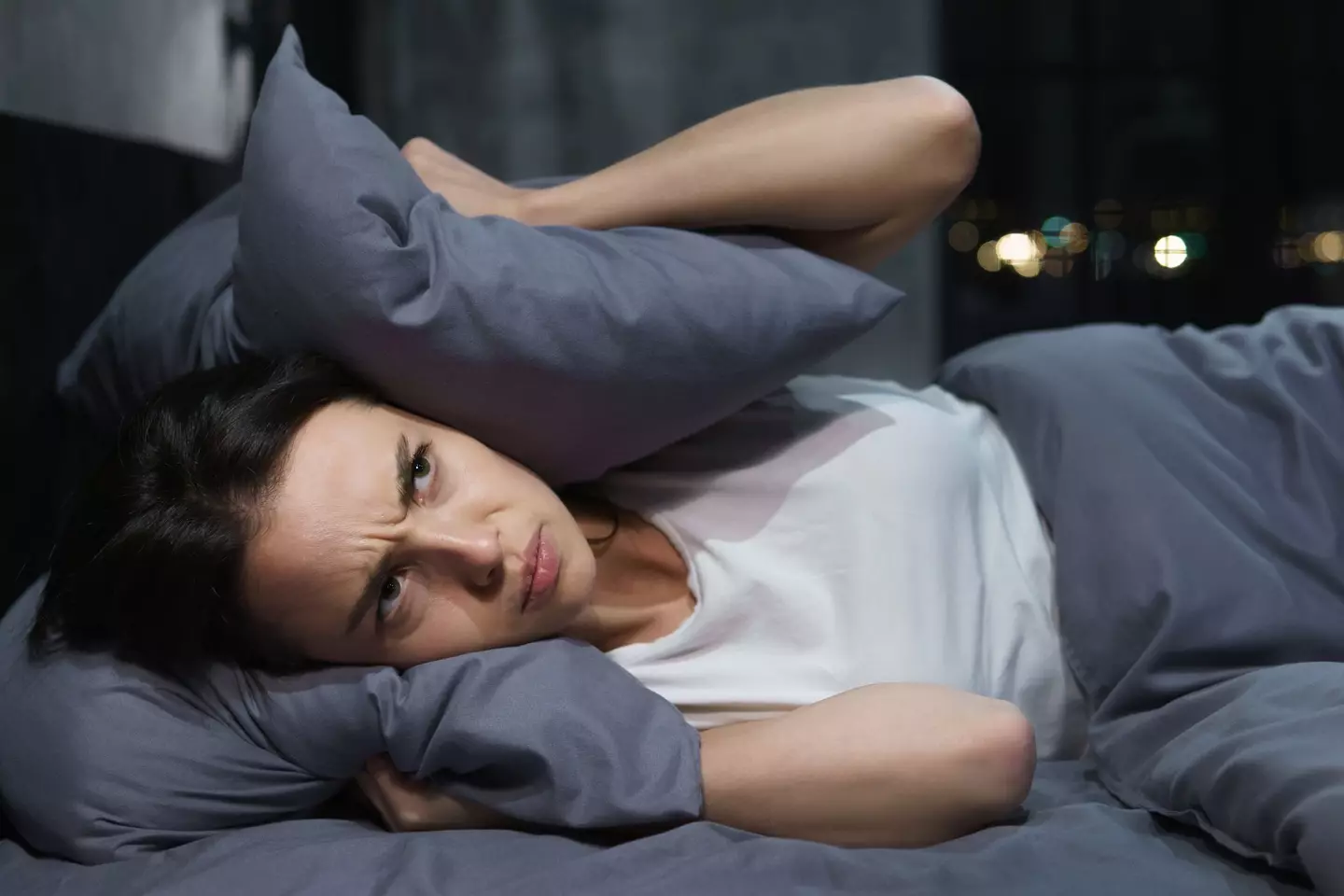
Constantly hearing a whooshing noise in the ear could be a sign of pulsatile tinnitus (Getty Stock Image)
Should I be concerned about hearing my heartbeat in my ears?
Dr Youn goes on to explain that being able to hear your heartbeat all the time while lying on your side or when standing up could be a sign of a condition called pulsatile tinnitus.
According to Tinnitus UK, pulsatile tinnitus is a when a ‘rhythmical noise’ can be heard in either the head, ears or both regions which typically matches your heartbeat.
Dr Youn adds that pulsatile tinnitus is ‘usually benign, there are some potentially concerning causes, so it’s best to see your doctor’.
The charity states that pulsatile tinnitus can be caused by a number of things, typically a change of blood flow in the vessels surrounding the ears. This can be caused by anything from tumours of the head and neck, elevated blood pressure as well as pregnancy, anaemia and hyperthyroidism.
Harvard Health states that ‘most of the time, pulsatile tinnitus is nothing to worry about’. However if you find yourself particularly concerned about your symptoms there’s nothing wrong in getting checked out by your GP.Featured Image Credit: Getty Stock Images

Brenna Cooper
Advert
Advert
Advert

Published 10:22 6 Dec 2024 GMT
Doctor reveals the one thing you should never do if you wake up in the middle of the night
If you want a good night’s sleep, don’t make this common mistake

There’s nothing worse than waking up in the middle of the night and not being able to get back to sleep.
You find yourself tossing and turning desperately to fall back into slumber.
But the more frustrated you get, the harder getting some shut-eye becomes.
People all have their own little hacks for heading back to the land of nod, whether it be counting sheep or reading a book.
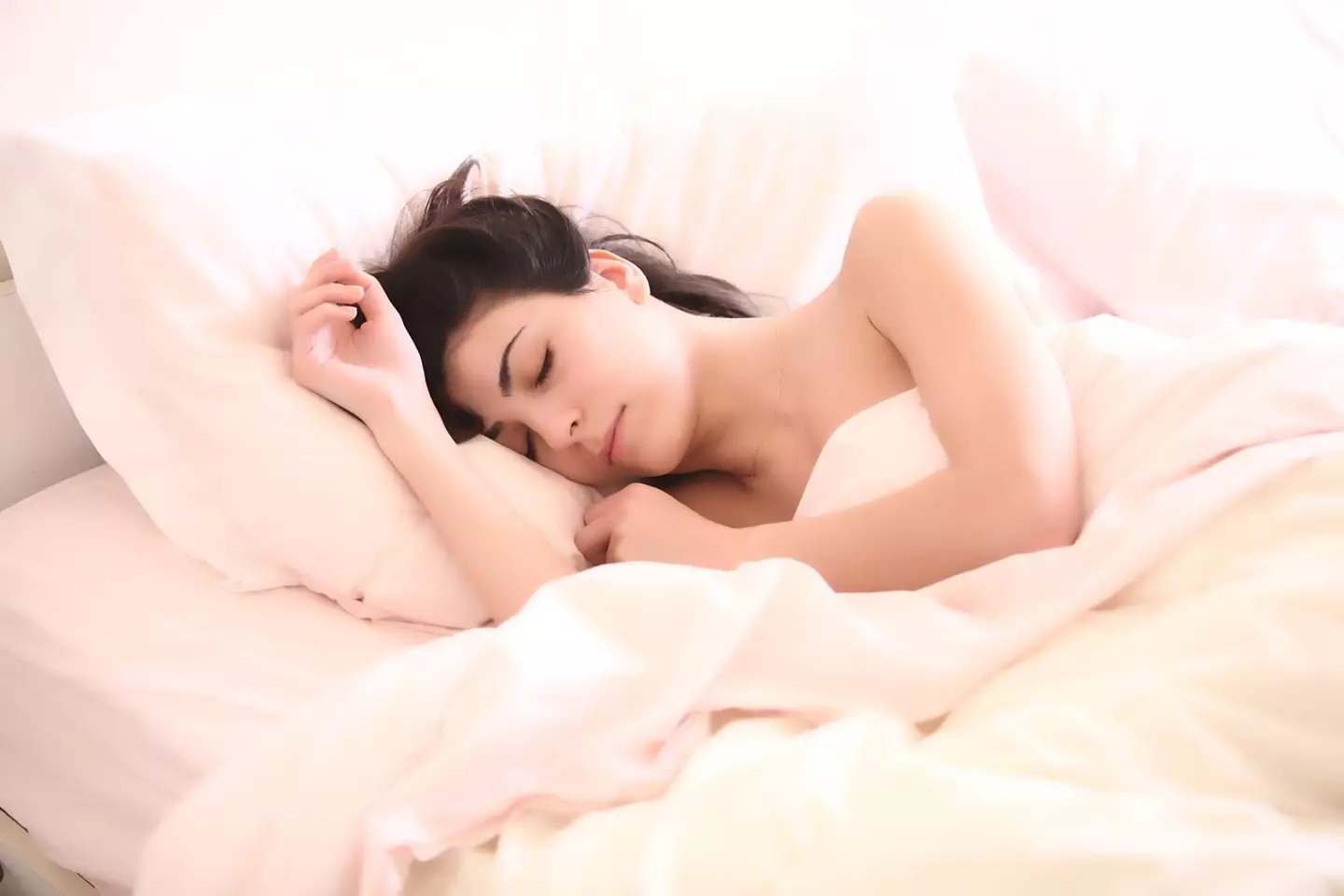
Pixabay)
But one sleep expert has spoken out about the thing you must never do if you want a chance at getting some rest.
Dr Biquan Luo, CEO of LumosTech, spoke to The New York Post about the biggest mistake a weary-eyed person can do in the late hours.
And yes, it involves that pesky thing we’re all addicted to – our phones.
Dr Luo said: “Checking the time can increase stress and make it harder to sleep. Additionally, if you check the time on your phone, the contents of the phone may be too stimulating, which further prevents you from relaxing and falling asleep.”
We’ve all been there – there’s nothing more stressful than realizing you only have a few precious hours to catch up on sleep.
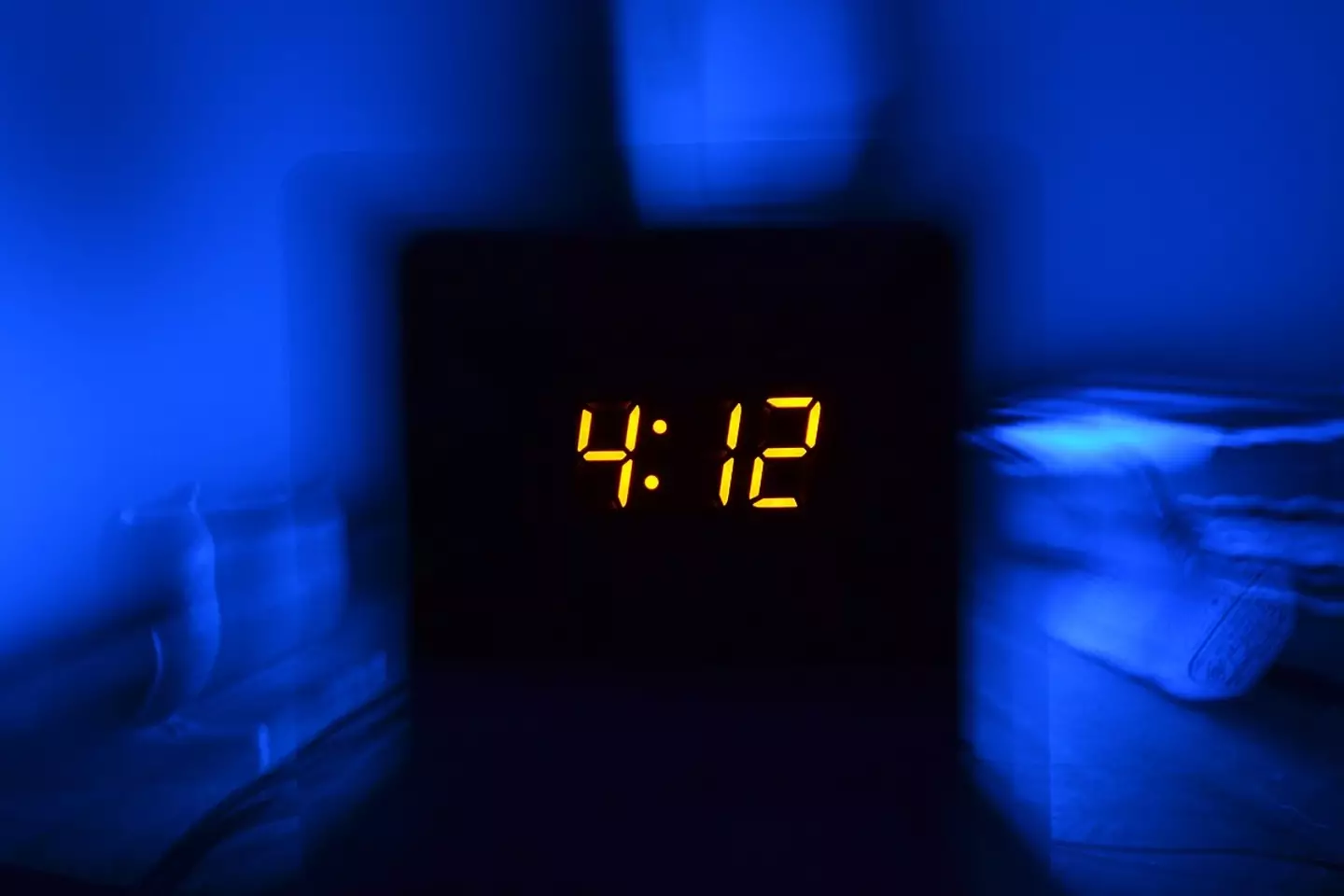
Wikimedia Commons/Benjaman Watson)
That 6am alarm is looming and seconds are ticking by – and you’re still awake!
And if you catch a glimpse of a late night message from an ex or a friend, forget about it.
You’re drawn back into a conversation you really shouldn’t be having at 3am, and you can kiss a good night’s kip goodbye.
The blue light from smartphones can also wreck havoc on our sleep patterns. There’s a reason why most sleeping experts advise that they are put away before hitting the hay.
So, what should we do if we find ourselves with open eyes at 2am?
The first bit of advice is to stay put and try to relax, in order to test whether you can get back to sleep naturally.
If that doesn’t work after 10 or 15 minutes, it’s time to get out of bed.
Head off to a quiet part of the house – like a sofa – and try a quiet activity like reading.

Wikimedia Commons/Rawpixel)
This should soon having yawning and heading back to the bedroom in no time.
If you find that sleeplessness is a constant woe for you, it might be time to pay your doctor a visit. It’s estimated that one in three people in the UK struggle with getting to sleep.Featured Image Credit: Getty Stock

Ben Thompson
Advert
Advert
Advert
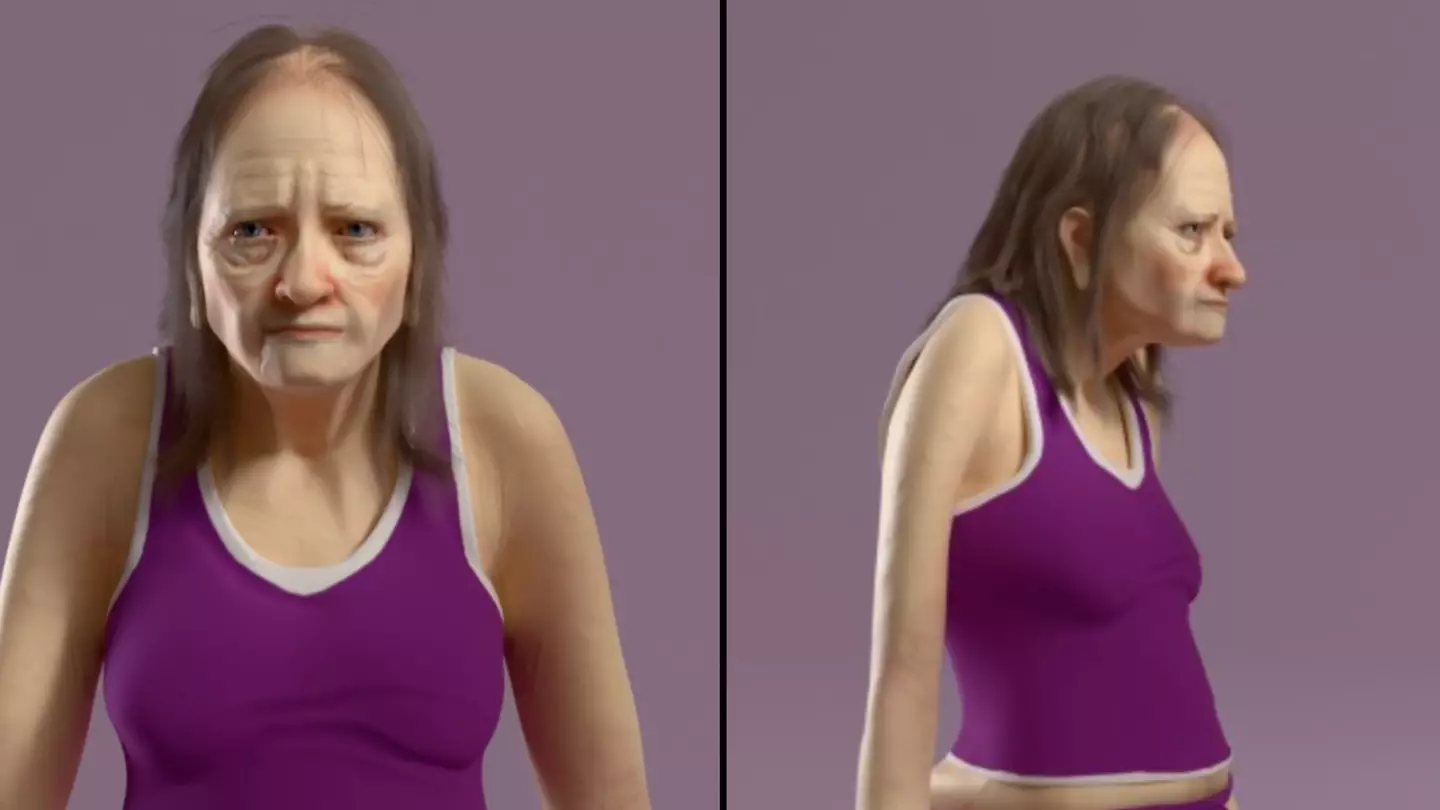
Updated 14:36 13 Dec 2024 GMTPublished 12:11 13 Dec 2024 GMT
Haunting images show what six hours of sleep a night will do to your body
Benson for Beds has come out with a terrifying reality for 2025 Brits

How many hours of sleep do you get each night? It could cost you a lot more than a tired morning.
Sleep is the ultimate powerbank for us to recharge and refresh so that we’re ready for the next day.
However, the amount of time we spend snoozing is incredibly important.
It’s well known that we need between seven or eight hours of sleep every night so that our brains are doing what they need to while we’re off in la la land.
But what would happen if you only slept for six?
According to Benson for Beds, on average, a lot of us only get 6 hours and 24 minutes of sleep per night.
While it might not seem like it’s going to be detrimental to our health, it could have short term and long-term consequences.
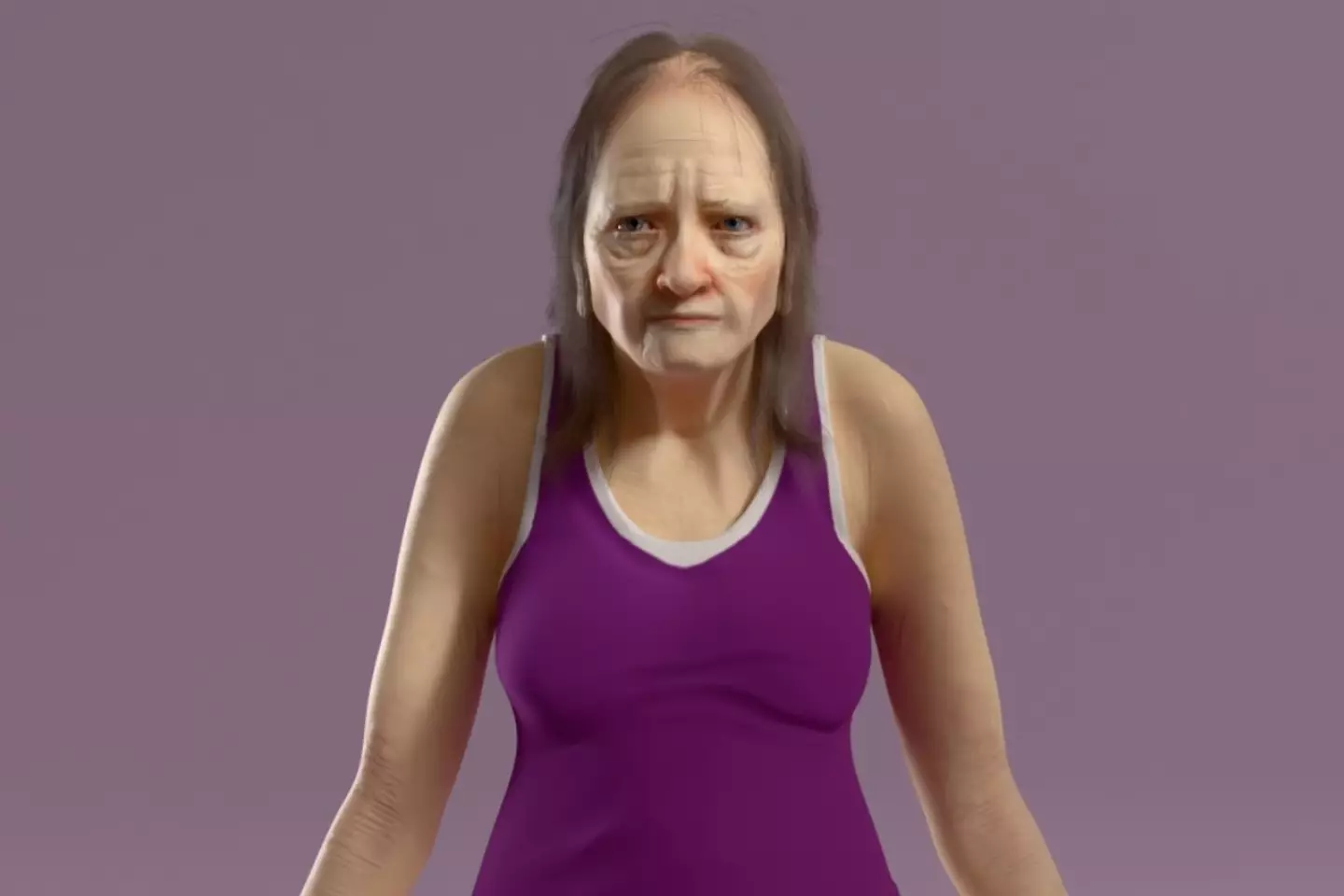
This could be you (Bensons For Beds)
Sleep expert Dr Sophie Bostock at the bed store shared that if you keep up with the under sleeping, in 25 years you’re going to look like this.
Hannah was created to show what British people would look like in 2050 if they kept sleeping for six hours.
You can see that at 40, she looks much older than her age.
According to the bed manufacturer, Hannah now suffers from short term memory loss, skin aging, hair loss and obesity.
This is all thanks to her sleeping habits.
She also now suffers from jaundice and wrinkles, shoulder and back pain and an overall naff health outlook.
Dr Bostock said: “Hannah is a thought-provoking illustration of the holistic impact that sleep has on maintaining overall health. Studies show that prolonged sleep deficiency can put you at a higher risk for conditions that may impact the heart including obesity, heart disease and type 2 diabetes.”
She added: “Research into the importance of consistent, good quality sleep for our health and wellbeing has accelerated in the last few decades. Many of us don’t realise that haphazard daily routines and lack of sleep interfere with our circadian rhythms, the 24-hour cycles which control our physiology.”
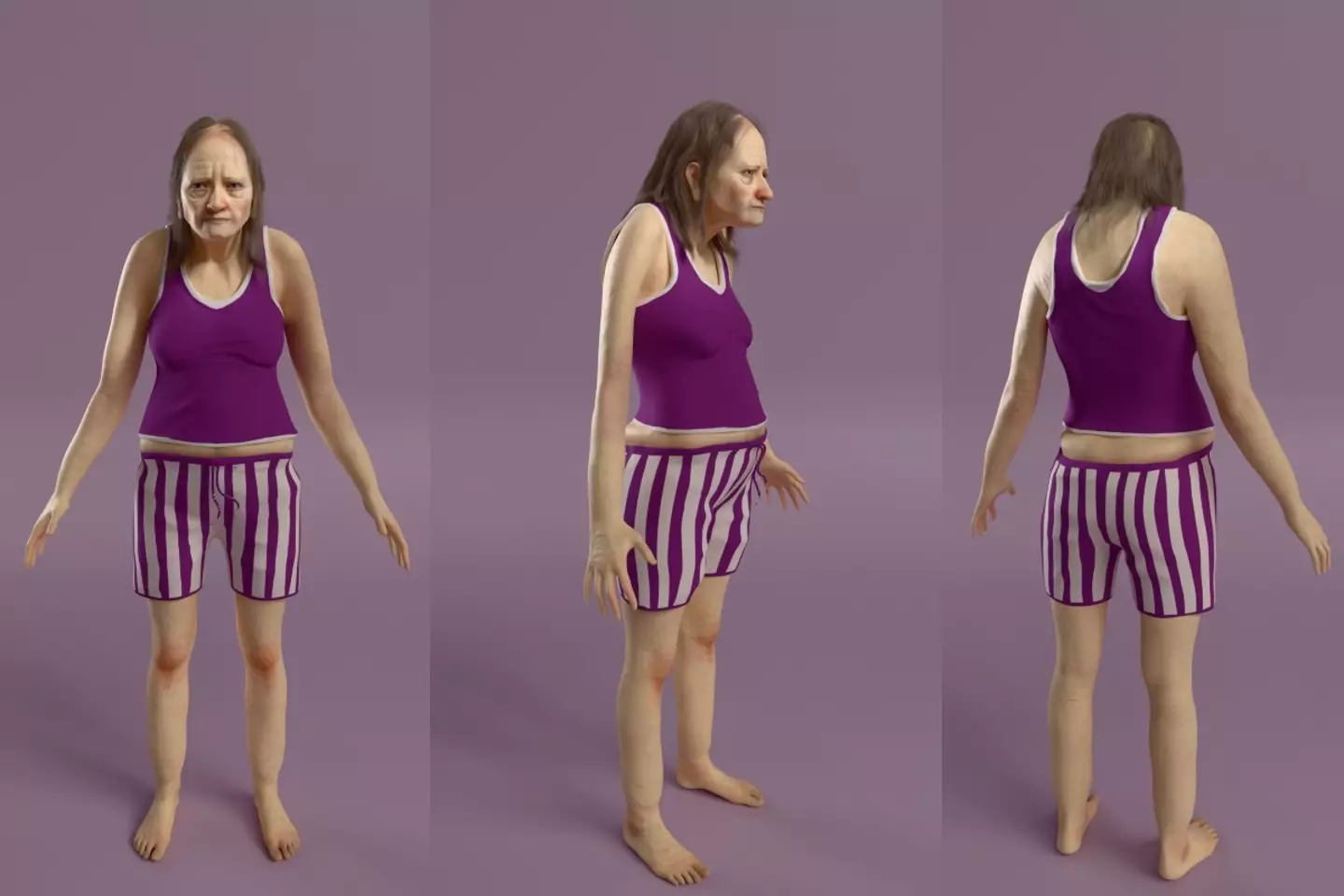
Don’t be like Hannah (Bensons For Beds)
The sleep experts designed Hannah using data which was published in research papers in academic journals since 2010, which shows the physical impacts on the brain, immune system, muscles, skin, eyes and hair, and all over.
Hannah has alopecia, a weakened immune system, and is more vulnerable to respiratory infections.
She also has eczema, and lives in chronic pain.
Her leptin and ghrelin hormones, which control feelings of hunger and fullness is all out of whack, meaning that she craves food all the time.
Essentially, Hannah’s health has slumped and it’s all down to her sleeping habits.
Dr Bostock believes that this could all be prevented if you get your body ready for a nice long sleep, such as waking up at the same time each day, exercising, take outdoor beaks and keep your bedroom dark.
Let’s be honest, you don’t want to end up like Hannah because you’ve been neglecting your body and your sleep health.Featured Image Credit: Bensons For Beds
Topics: Sleep, Health, UK News

Britt Jones
Advert
Advert
Advert
AD
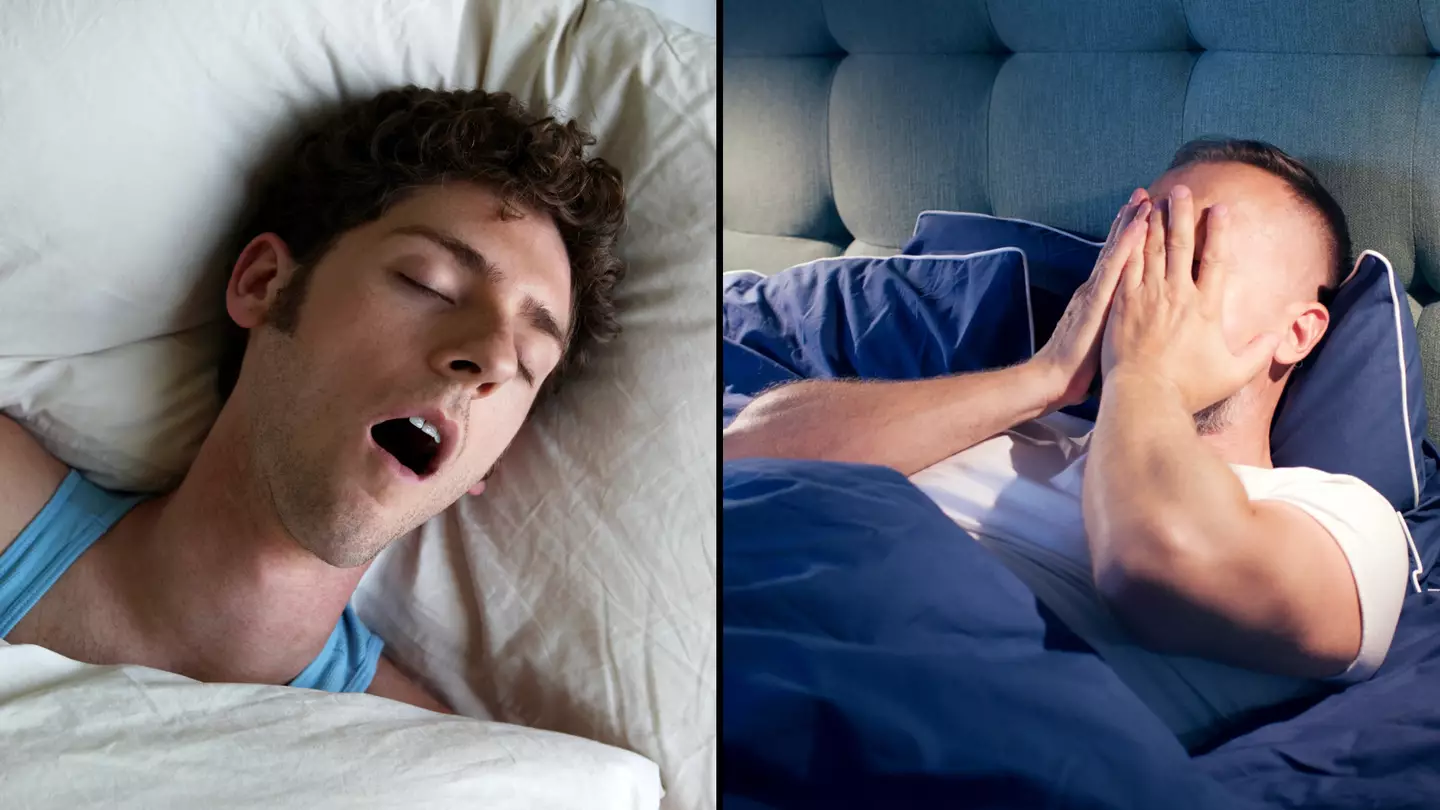
Updated 21:13 2 Feb 2024 GMTPublished 21:09 2 Feb 2024 GMT
Common meaning behind experiencing yourself dying in your own dream at night
You may have recurring dreams where you die, and the reasons behind it have been explained

The reasons behind experiencing yourself die in your dreams have finally been explained.
Surely it’s not just me that gets these weird dreams where I die from time to time?
The previously unexplained phenomenon has finally been given an explanation, and we can all start to understand why we wake up in a sweat.
Why you need to sleep between 10pm and 4am
Credit: Diary of A CEO
0 seconds of 1 minute, 36 secondsVolume 90%
Bedtime is one of the most important times in the day – from when you decide to sleep to how long you sleep for, it can alter the next day drastically.
But sometimes, you can do everything right, and still be woken up by a nightmare or an unpleasant ending to a dream.
It is a horrible feeling, comparable to the feeling in your stomach when a rollercoaster drops down a slope, minus the thrill.
However, it turns out that you can turn these unsettling experiences into a helpful tool that signifies something hopeful.
Dying in a dream usually relates more to the concept of change or transformation instead of actual death according to mystical practitioner MaKayla McRae.
“You may be releasing what no longer serves you, getting out of a comfort zone, or experiencing a transitional time,” She explains.
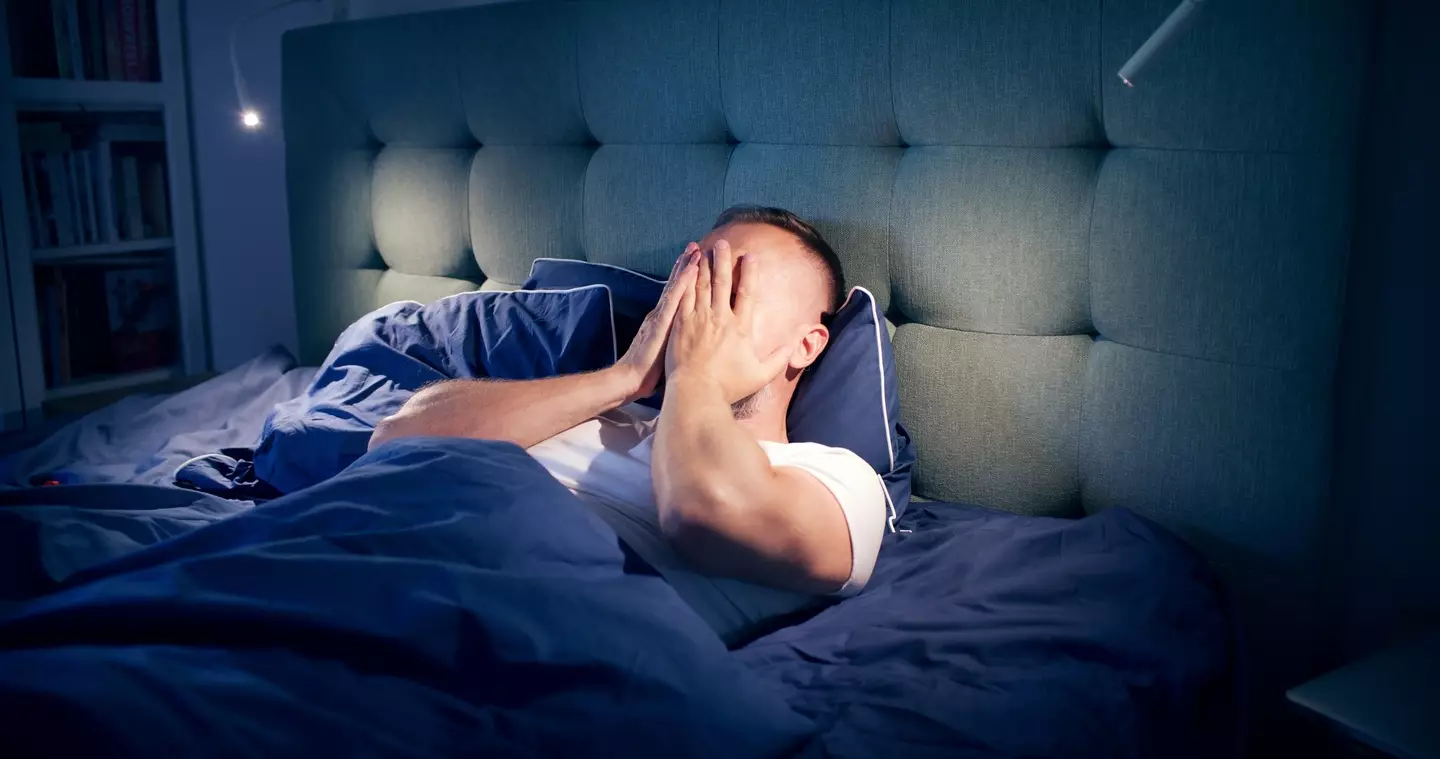
Getty Stock Photos
There are a few reasons as to why you may dream of dying:
A part of you is dying and being reborn
“Dreaming of your own death is symbolic of going through a transitory time when it comes to your self-identity,” she explains.
MaKayla also explains that you’re coming to terms with the new you, and it could be anything from breaking a bad habit or becoming more authentic.
You have new beginnings on the horizon
A dream where you die may signify that a huge new beginning is on the way.
That could be anything from a new relationship to a new career move – basically a chance at a fresh start and a new life chapter.
Allow the change to happen
Death in your dreams could be a reminder to stop resisting change.
MaKayla says: “Remember, the only constant in life is change!”
A sign of anxiety
If the dream is accompanied by distressing feelings, it might be anxiety induced, so if you have been worrying about death then it makes sense as to why it is on the surface of your subconscious.
If these regularly occur, speak to a medical professional.
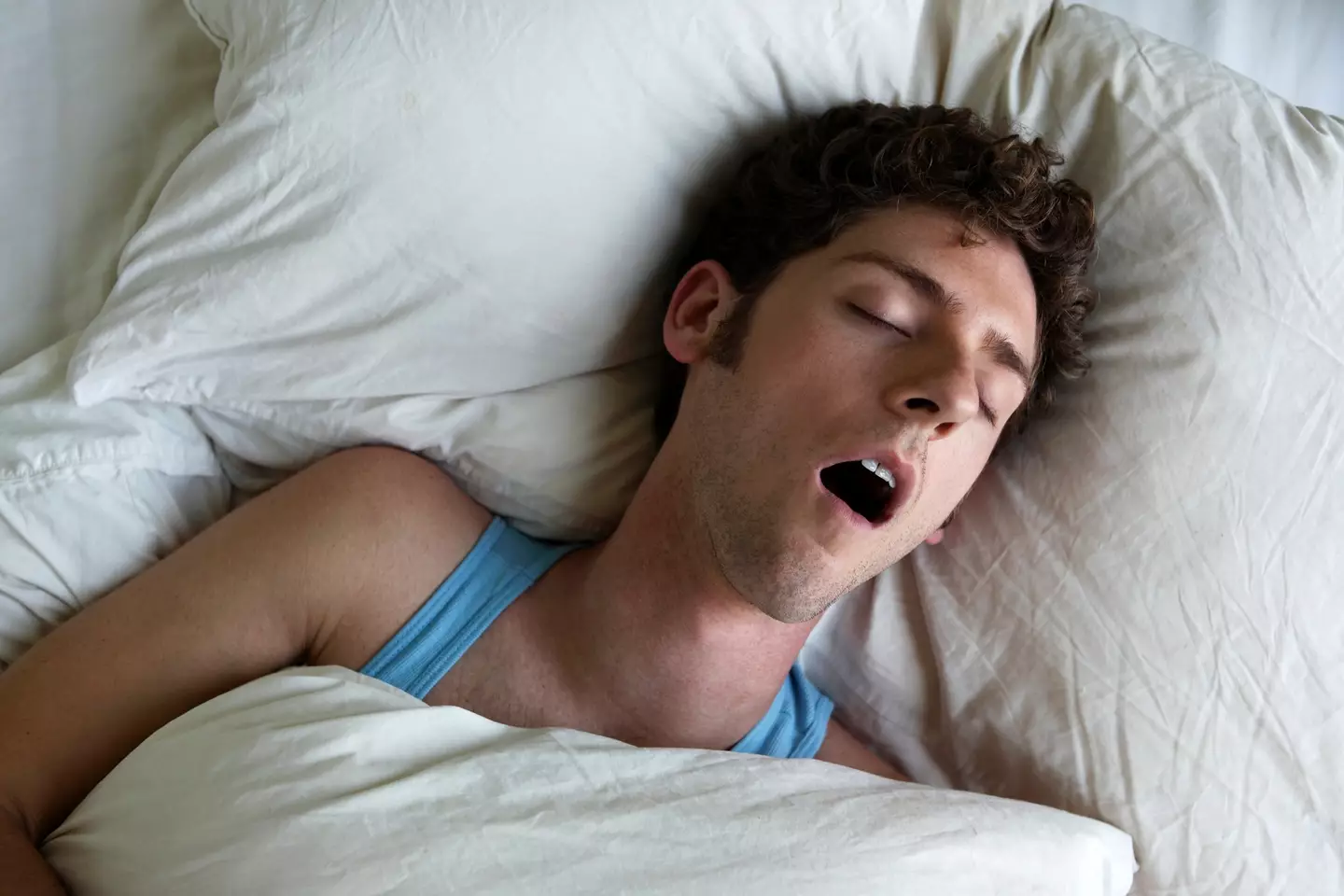
Getty Stock Photos
Fear of losing loved ones
These dreams could include yourself or someone you love dying, indicating that you’re scared to lose those close to you.
“Your relationship to them has changed or is undergoing changes,” MaKayla explains.
Time to end a relationship
It might highlight that you will see a relationship end and you will need to deal with the loss.
It could be with a romantic partner or with a friend, but it might be time to end the toxic relationship and move on.
Coming to terms with new realisations
This is if you wake up right before you die in the dream.
It means that you’re currently ‘going through a big life change that is still in motion or not completed’.
You’re essentially ‘waking up’ to the truth of your changes.
Live your life
You don’t want to regret your life while you’re on your deathbed, so your subconscious could be using your dreams to remind you to do and experience more.
Make the most of each day, we only get one life after all.Featured Image Credit: Getty Stock Photos
Topics: Health, Mental Health, Weird, Sleep

Joshua Nair
Advert
Advert
AD
Advert
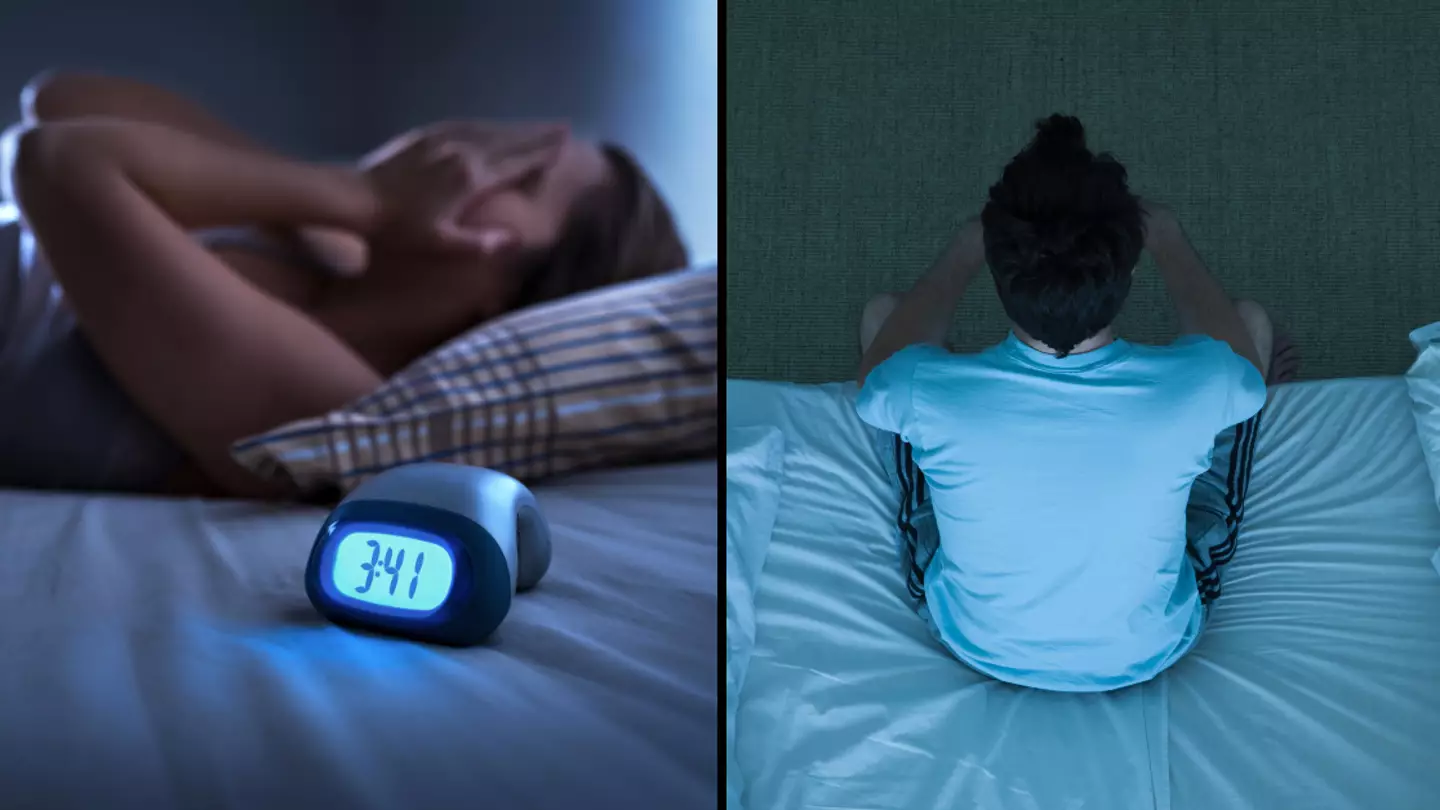
Published 15:57 5 Sep 2024 GMT+1
Mental health experts explain why anxiety can be worse at night and before sleeping
There are a few reasons why your anxiety might be worse at night and when trying to sleep

Finding it hard to fall asleep is something millions of us encounter every single night, with the problem often made worse by our mental health.
And there is solid science behind why we find it difficult to drop off when feeling anxious in particular, with the mental health disorder taking its toll on us while we try and relax for the next day.
Some find ease in sleeping with background noise, although this isn’t without its underlying issues, according to some experts.
The sleeping method that could save your relationship
Credit: TikTok/@Levitex
0 seconds of 38 secondsVolume 90%
There is help out there, though, in particular vitamins and products you can take to help with tiredness and fatigue in the hope of resting well.
When it comes to underlying anxiety and mental health issues, LADbible spoke to a university professor on the issue and why you might be struggling when it comes to night time and then going to bed.
Professor Ivo Vlaev is a behavioural psychologist from Warwick Business School at the University of Warwick. He said: “Anxiety tends to worsen at night for several reasons, particularly because of the change in environment and mental focus.
“During the day, the brain is usually occupied with various tasks, distractions, and social interactions, which can suppress anxious thoughts. However, at night, when a person is in a quiet, relaxed environment, the lack of distractions allows anxious thoughts to surface.”
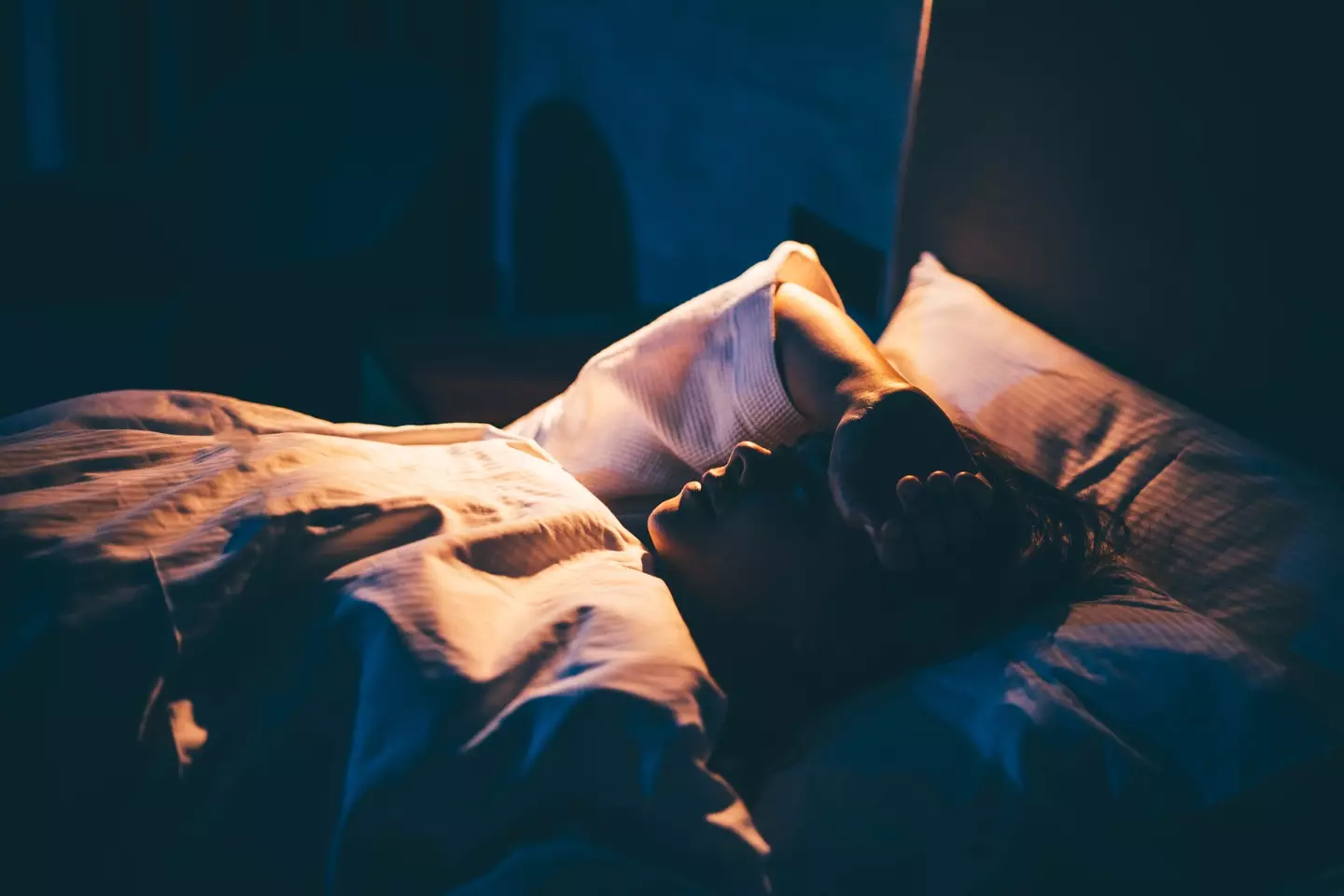
Anxiety flares up at night time for millions of people around the world (Getty Stock Images)
Why anxiety is more intense when going to bed
According to Prof Vlaev, a lack of distraction is one of the big issues when it comes to having anxiety flare ups.
“During the day, activities like work, social interactions, and errands keep the mind occupied,” he said.
“At night, these distractions fade, and the mind may become free to reflect on worries, future uncertainties, or unresolved issues, intensifying anxiety.”
That time with no distraction also gives you the ability to reflect on the day that has been; moments that you might find yourself thinking about a little too much.
Prof Vlaev says: “As you lie down, it’s natural to reflect on the day’s events or anticipate what’s coming next. This reflection can often turn into overthinking, where small issues seem magnified, leading to rumination about tasks left unfinished, concerns about social interactions, or worries about the future.”
There is a physical reason too, though, with your body’s natural rhythm playing its part. Prof Vlaev explains: “Cortisol, a stress hormone, has a natural rhythm where levels tend to rise in the early morning hours to help with waking up, but it can lead to increased feelings of anxiety if you’re awake at that time.
“Also, the body’s circadian rhythms and hormonal fluctuations can play a role in why anxiety feels more acute at night.”
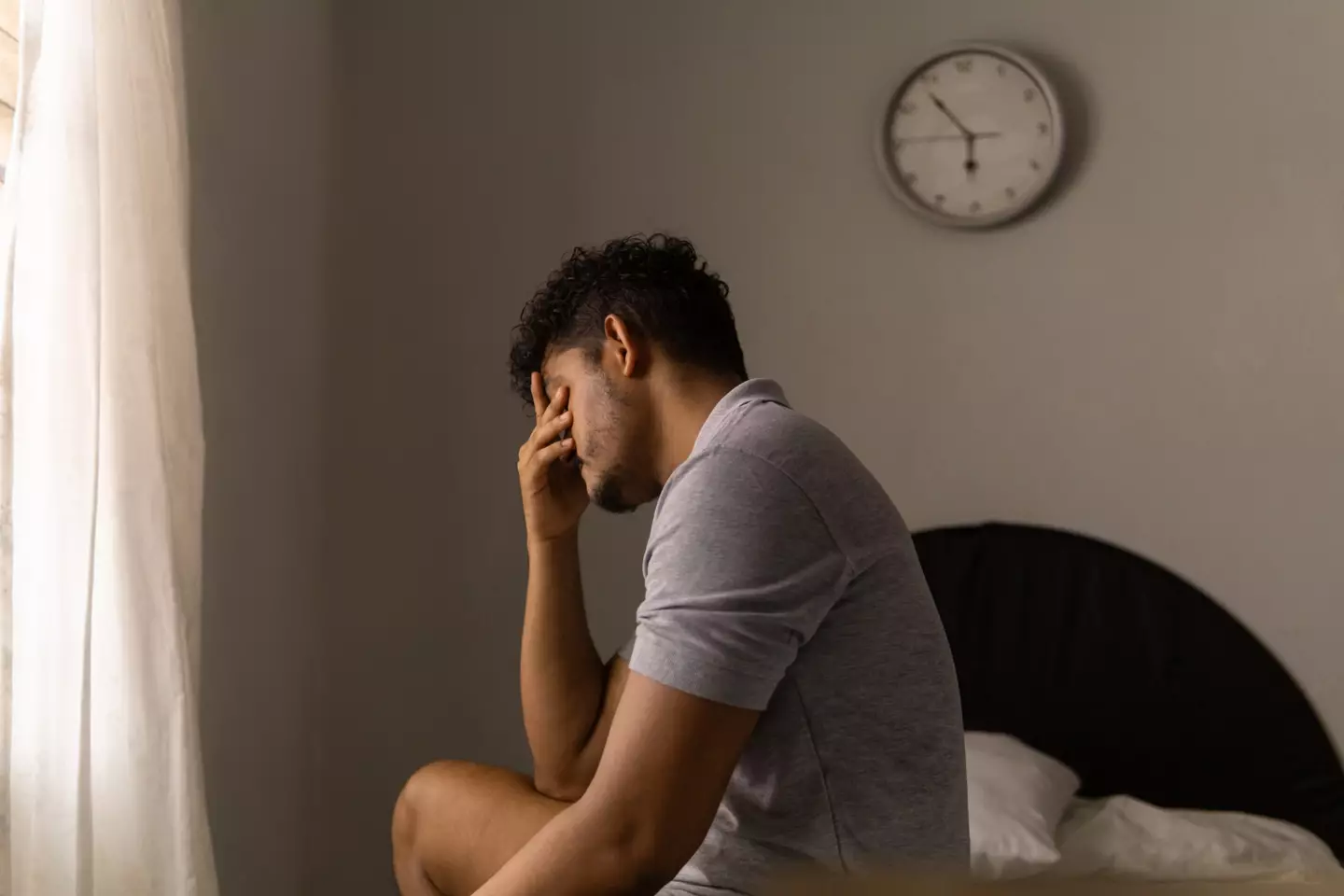
You’re not alone if you find it difficult (Getty Stock Images)
Fatigue, darkness, and a lack a control
As well as this, mental and physical fatigue can impair your emotional regulation. By the end of the day, coping mechanisms are often weaker, making it harder to manage anxious thoughts.
Exhaustion lowers a person’s capacity to deal with stress and anxiety in healthy ways, which may lead to overthinking and heightened anxiety.
Having a quiet, dark, and isolated atmosphere at night can also trigger feelings of unease, with Prof Vlaev saying: “Without external stimuli, your brain may focus on internal fears, leading to racing thoughts and amplifying feelings of worry.”
Ultimately you’re heightening the feeling of having no control.
“Nighttime tends to bring about a feeling of loss of control,” the professor says.
“During the day, we are actively engaging in tasks and feel a sense of accomplishment. At night, the sense of waiting for sleep and not knowing when it will come can make people feel helpless, exacerbating anxiety.”